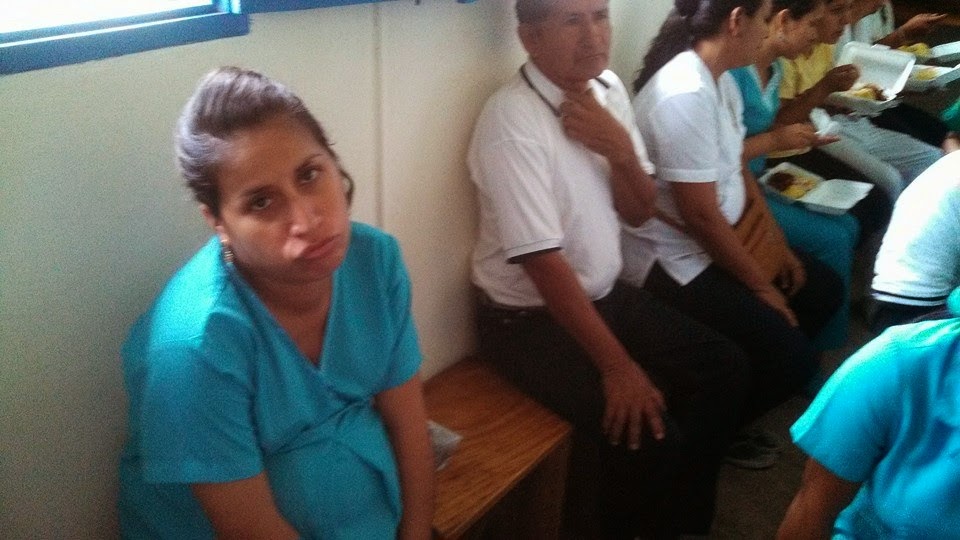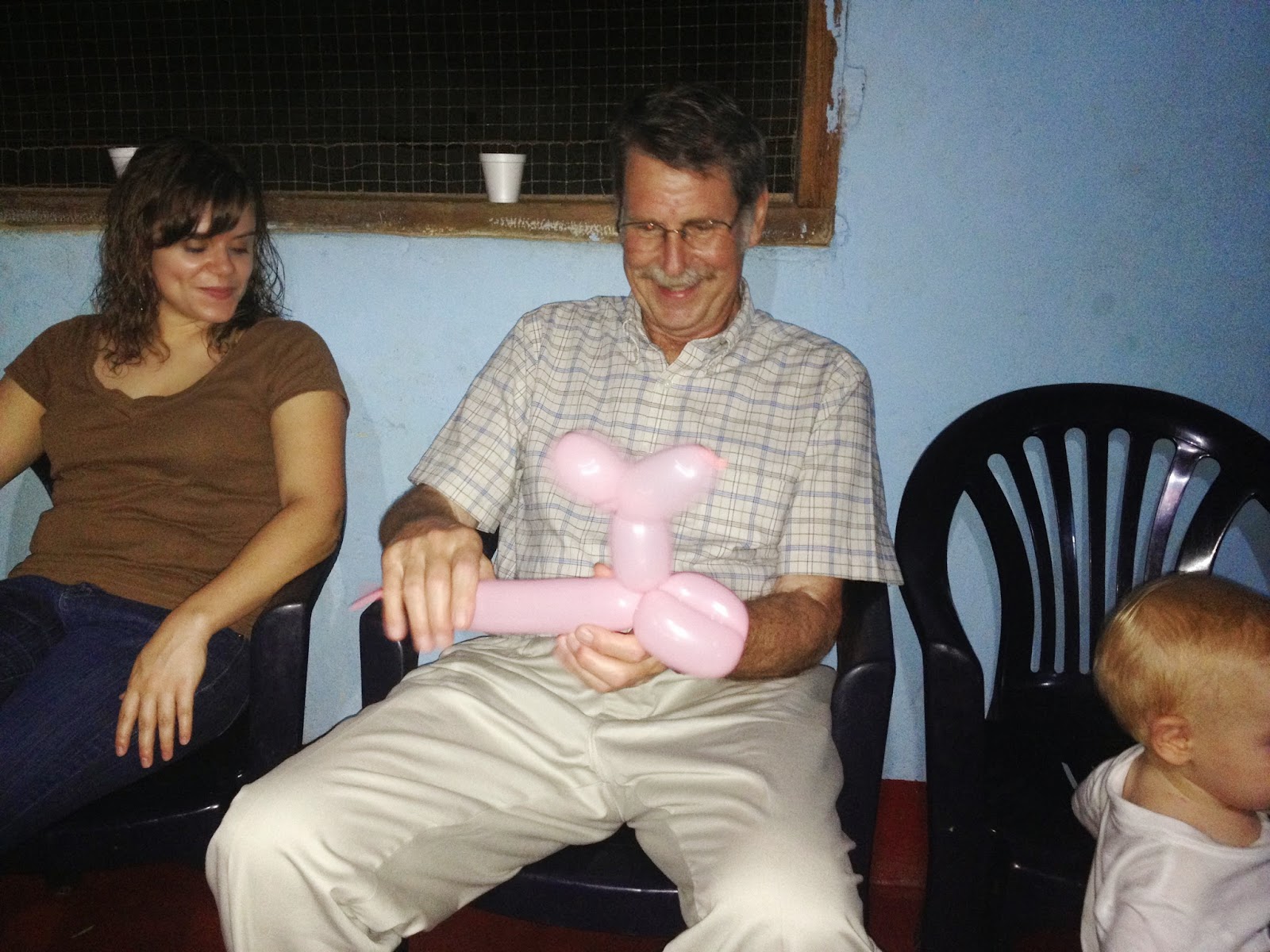 I'm sitting on the back our our hospital speed boat, heading to Iquitos, with the bright sun reflecting off of the calm water to my left. To my right, the sky is somewhat overcast and Treycy is sitting in her mom's lap, smiling with a cast on her arm. Grodier, an amazing young carpenter and father of three, is laying on a stretcher in the front of the boat. He can't walk and we suspect that he fractured his back after falling down carrying a door. Our new pharmacist Luis Alberto is at my side. Since his arrival, patients have not wanted for any medicines. He does a good job.
I'm sitting on the back our our hospital speed boat, heading to Iquitos, with the bright sun reflecting off of the calm water to my left. To my right, the sky is somewhat overcast and Treycy is sitting in her mom's lap, smiling with a cast on her arm. Grodier, an amazing young carpenter and father of three, is laying on a stretcher in the front of the boat. He can't walk and we suspect that he fractured his back after falling down carrying a door. Our new pharmacist Luis Alberto is at my side. Since his arrival, patients have not wanted for any medicines. He does a good job.
Charlie is home with dad, and for the first time I'm traveling without him. Knowing that we should return by tomorrow afternoon to Santa Clotilde makes this a gentle transition. I have no worries... I came home from my first "real" call two days ago (in other words I was in the hospital the whole evening, overnight, and then all morning rounding on our 25 patients and tending to patients who arrived with malaria, vomiting, and dehydration). Brian was in the shower. Charlie was fed, bathed, clothed, and watching Rio2. The laundry was done, the house was clean, veggies washed, powdered milk made, and he had food waiting for me. So as you could imagine, I'm loving this boat ride... it's the first
time in over a year I've had to myself.

What a miracle it is really, to be here in Peru.
Charlie is 16 months and I've been considering weaning him from nursing. The local wisdom that I consistently hear while talking to other mothers here is "put toothpaste on and then he wont want to nurse anymore." After weeks of contemplation, I tried it. It worked like magic! After one taste of toothpaste, he wanted nothing to do with me. I offered him a bottle which he happily accepted. Multiple times throughout the day he would re-address the issue, pulling my shirt down and digging for a drink. Every time, he saw the flaking toothpaste and the smell of mint, looked at me and cringed his nose, and walked away. After 15 hours, I actually gave up. He was half asleep at 10pm, fussing and crying, and I was tired and overfull, so I gave in. I thought maybe a bit of a slower transition over a couple weeks would work better for me.
families. Last night we gave Treycy ketamine to reduce her fracture and cast her arm. We played lullabies and talked about rainbows and butterflies and she smiled. This morning I walked over, knocked on her cast, and asked her "when did you put this on?" and she giggled, shrugged her shoulders, and replied "I dont know." The beauty of ketamine is that kids don't hurt and remember nothing. We also have 3 kids in the hospital with glomerulonephritis and high blood pressure, three patients with HIV- two of whom are incredibly sick, a bunch of people with pneumonia and possibly TB, a few kids with severe malnutrition, fevers, and big livers. One 14 year old boy had surgery for spina bifida as a baby and although he can walk, he has ulcers on his butt and foot because he lost some of his sense of feeling and forgets to shift his weight. He's healing well. We had a woman who was 22 weeks pregnant with a severe infection in her belly who ended up delivering a very premature baby. Another woman was on her way to our hospital from 4 hours upriver and ended up delivering TWINS en route, in her canoe. The mom and full-term healthy twin girls arrived healthy and breastfeeding and went home two days later.
 In Iquitos, after bringing the patients to the hospital and ensuring they get the X-rays and care they need, I'll be shopping to re-stock our pantry and buy a few fresh items for thanksgiving dinner. Although Santa Clotilde is a small town, we find almost everything we need there. For the things we cant buy in Santa Clotilde, we go to Iquitos. For the things we cant find in Iquitos, like good ground coffee, hershey bars, and peanut M&Ms to fulfill Brian's addiction, we phone a friend and the monthly volunteers are often able to find room in their bag for us. We're so grateful for all the support from back home that allows us to serve here!
In Iquitos, after bringing the patients to the hospital and ensuring they get the X-rays and care they need, I'll be shopping to re-stock our pantry and buy a few fresh items for thanksgiving dinner. Although Santa Clotilde is a small town, we find almost everything we need there. For the things we cant buy in Santa Clotilde, we go to Iquitos. For the things we cant find in Iquitos, like good ground coffee, hershey bars, and peanut M&Ms to fulfill Brian's addiction, we phone a friend and the monthly volunteers are often able to find room in their bag for us. We're so grateful for all the support from back home that allows us to serve here!













